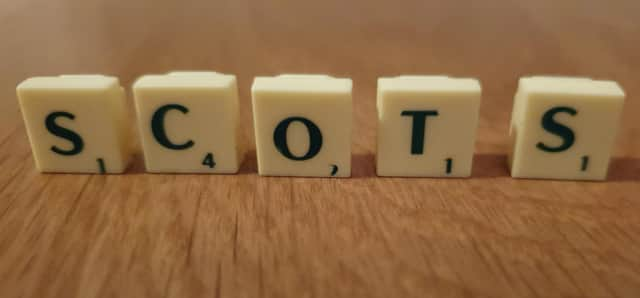Campaign calls for legal protection of Scots language


Oor Vyce brings together entertainers, writers, academics and political campaigners who want the Scottish Parliament to pass a law similar to the 2005 Gaelic Language Act that will promote ‘The Mither Tongue’.
They also want an official body like Bòrd na Gàidhlig, to raise the status and profile of Scots.
Advertisement
Hide AdAdvertisement
Hide AdThe campaign builds on a commitment made at the SNP conference last year to secure better protection for the language, which is spoken by one in three Scots – or more than a million and a half people - according to the 2011 Census.
Jack Capener, founder of Once Vyce, said: “It’s time for Scots voices to be heard. Despite its prevalence in everyday life, Scots lacks any sort of official status. There’s no legislation in place recognising it. We need to protect and promote it like Gaelic.
“When sae mony fowk dinnae see the wey they blether wi yin anither aw the time in their ain country respectit bi politeecians, it maks them scunnert an feelin hoo they talk micht somehoo be wrang. An we ken fine it’s no wrang, it’s yin o oor ain vyces.
“That’s why we’re calling for the Scottish Government to legislate for a Scots Language Act to officially recognise the rights of Scots speakers and set up a board with powers to protect and promote the language.
“According to the 2011 census, Scots has more than a million and a half speakers, making it Scotland’s second most spoken language.
“It’s around us all the time, used as the language of work, home and family in communities from Shetland to Galloway, Banffshire to the Borders, as well as playing a key role in our cultural heritage through song and literature.”
Oor Vyce had a soft launch on Facebook, Twitter and Instagram today (June 1) ahead of the main launch after Lockdown is lifted.
The 2011 Scottish Census found that 1.54 million (30% of Scotland’s population) are able to speak Scots.
Advertisement
Hide AdAdvertisement
Hide AdAccording to The Scots Language Centre, the language originated with the Angles who arrived in Scotland around 1,400 years ago.
During the Middle Ages this language developed and grew apart from its sister tongue in England, until a distinct Scots language had evolved.
At one time Scots was the national language of Scotland, spoken by Scottish kings, and was used to write the official records of the country. Scots was displaced as a national language after the political union with England, in 1707, but it has continued to be spoken and written in a number of regional varieties since that time.
Scots is recognised by the UK Government as a regional language under the European Charter for Regional and Minority Languages, which the Scottish Government supports
Last year the SNP approved a conference resolution calling for a Scots Language Board and a debate in the Scottish Parliament last year featured MSPs from all political parties, several of them speaking Scots.
But no legislation is currently in place to protect and promote the language in the same way as Gaelic.
A Scottish Government spokesperson said: “We take the promotion and preservation of the Scots language seriously and our ambition is for Scots to be recognised, valued and used in Scottish public and community life.
“We are aware of the recent calls for an agency to support Scots and are talking to the sector to better understand their wishes.”
Advertisement
Hide AdAdvertisement
Hide AdA message from the Editor:Thank you for reading this story on our website. While I have your attention, I also have an important request to make of you.With the coronavirus lockdown having a major impact on many of our advertisers - and consequently the revenue we receive - we are more reliant than ever on you taking out a digital subscription.Subscribe to scotsman.com and enjoy unlimited access to Scottish news and information online and on our app. With a digital subscription, you can read more than 5 articles, see fewer ads, enjoy faster load times, and get access to exclusive newsletters and content. Visit https://www.scotsman.com/subscriptions now to sign up.
Our journalism costs money and we rely on advertising, print and digital revenues to help to support them. By supporting us, we are able to support you in providing trusted, fact-checked content for this website.
Joy Yates
Editorial Director